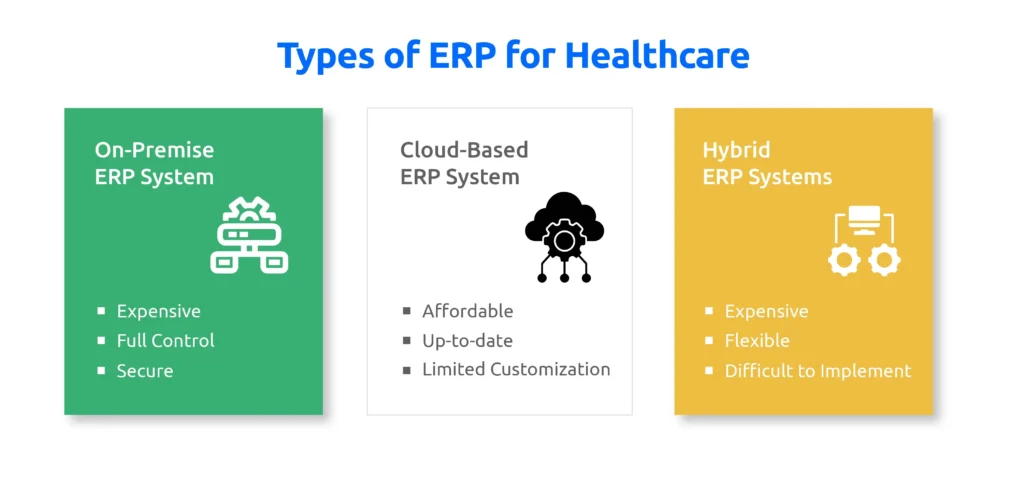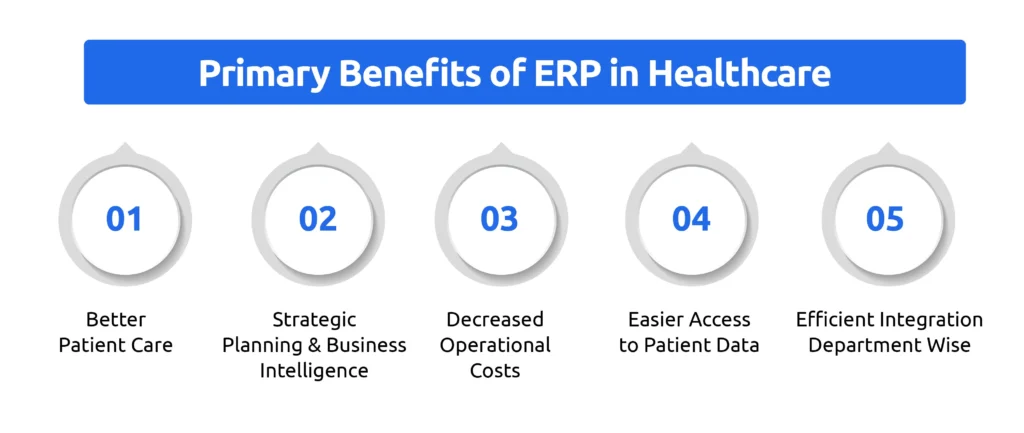
Top 12 Software Development Methodologies for Effective Project Management
As digital transformation accelerates, businesses are increasingly committed to developing scalable and feature-rich software solutions that address both internal and

Accelerate your time-to-market with unmatched quality through our subscription-based development services

Accelerate your time-to-market with unmatched quality through our subscription-based development services
Software Development as a Subscription

Security as a Service

Launch Your MVP in 90 Days

Building secure decentralized solutions

Modernize Your Software with AI

Developing smarter software systems


Accelerate your time-to-market with unmatched quality through our subscription-based development services

Accelerate your time-to-market with unmatched quality through our subscription-based development services
Software Development as a Subscription

Security as a Service

Launch Your MVP in 90 Days

Building secure decentralized solutions

Modernize Your Software with AI

Developing smarter software systems


Accelerate your time-to-market with unmatched quality through our subscription-based development services

Accelerate your time-to-market with unmatched quality through our subscription-based development services
Software Development as a Subscription

Security as a Service

Launch Your MVP in 90 Days

Building secure decentralized solutions

Modernize Your Software with AI

Developing smarter software systems


Accelerate your time-to-market with unmatched quality through our subscription-based development services

Accelerate your time-to-market with unmatched quality through our subscription-based development services
Software Development as a Subscription

Security as a Service

Launch Your MVP in 90 Days

Building secure decentralized solutions

Modernize Your Software with AI

Developing smarter software systems


Accelerate your time-to-market with unmatched quality through our subscription-based development services

Accelerate your time-to-market with unmatched quality through our subscription-based development services
Software Development as a Subscription

Security as a Service

Launch Your MVP in 90 Days

Building secure decentralized solutions

Modernize Your Software with AI

Developing smarter software systems

Ever thought the reasons behind any organization being successful? Most people answer it like leadership and vision. But if you overlook factors like effective communication within the organization and efficient operations especially for healthcare businesses, you would know that managing process effectively communication in healthcare delivery is the key. But heres is another question, how is it possible? The answer is simple: integrating healthcare ERP. But why? It is a robust solution that streamlines the healthcare processes and when it is integrated, it promotes patient care. That is why, healthcare businesses have realized the potential of ERP medical software and are implementing it into their processes.
According to Marketsandmarkets analysis, the global Healthcare ERP market is expected to reach USD 12.0 billion by 2030 from USD 6.9 billion in 2022, growing at a CAGR of 6.2%. This growth is driven by the adoption of ERP integrated Electronic Health Records (EHRs) that simplify and enhance healthcare data accessibility, improve patient outcomes, increase patient satisfaction, and advance care quality. Some key players in this market include Microsoft Corporation, Oracle Corporation, SAP SE, McKesson Corporation, Sage Group Plc, Infor Inc., Odoo, QAD Inc., and Epicor Software Corporation.
This article discusses the benefits of ERP in healthcare, best ERP for healthcare, what is an ERP system in healthcare and top healthcare ERP systems. Keep reading!
ERP in healthcare refers to “enterprise resource planning healthcare” is a system that integrates various hospital functions into a single platform. Interesting right? You remember we talk about communication within organizations makes it successful, this is it. ERP systems enhance operational efficiency and patient care. The below picture illustrates ERP components like Pharmacy, which handles drug purchases and records; Patients, managing registration and billing; and Doctors, supporting appointment and leave management. It also includes Accounts for financial transactions, and Staff management for attendance and ward operations.
The diagram shows that this system is very comprehensive as ERP for the healthcare industry ensures streamlined workflows, better compliance, improved data management, and overall improved healthcare services. These features make it an essential tool in modern healthcare management.
There are three types of ERP systems in healthcare. However, the best ERP systems for healthcare are those that focus on optimizing operations and data management. Understanding these three types can help healthcare organizations determine the best ERP setup for their needs.

On-premise ERP in healthcare is a traditional model that requires significant initial investment but offers enhanced control over security and customization. Healthcare institutions with complex requirements often prefer on-premise ERP to ensure data is managed internally without external dependencies.
Cloud ERP for healthcare is a modern approach that is more scalable and easier to deploy than on-premise solutions. It’s particularly advantageous for small to medium-sized healthcare providers due to lower upfront costs, reduced IT staffing needs, and flexibility in managing operational loads.
Hybrid healthcare ERP systems provide the best of both worlds, making them suitable for healthcare organizations in transition. Hybrid ERP allows for phased migration where certain processes can be moved to the cloud while others remain on-premise, giving organizations flexibility to scale and adapt as their needs evolve.
According to Precedence Research, the global healthcare Enterprise Resource Planning (ERP) market size was $5.64 billion in 2021 and is expected to reach $10.04 billion by 2030. Healthcare organizations that adopt ERP in their systems can rep the following benefits:

Healthcare ERP systems streamline data access, allowing healthcare professionals to quickly retrieve patient information and make informed treatment decisions. By reducing paperwork and manual data entry, these systems enable doctors and nurses to focus more on delivering quality care.
Hospital ERP software, healthcare organizations gain real-time insights into their operations. This includes financial analytics and performance metrics that highlight areas for improvement. Integrating business intelligence helps organizations optimize processes and improve overall efficiency.
By centralizing data, healthcare erp solutions minimize the need for multiple software solutions, cutting down on integration expenses. This centralization also decreases manual work, freeing up resources and reducing associated costs, while providing insights into performance to further drive cost savings.
Timely access to patient medical history is crucial for effective treatment. Healthcare ERP systems act as central repositories, organizing information for easy retrieval, which boosts healthcare providers’ productivity and enhances patient outcomes.
ERP in healthcare can facilitate seamless communication and integration across various departments, such as finance, human resources, and inventory management. This integration streamlines operations and improves data sharing, ensuring all departments work cohesively towards common goals.
ERP in healthcare implementation is revolutionizing how medical institutions operate. From managing patient records and optimizing inventory to streamlining financial processes and enhancing clinical decision-making, these systems integrate various functions to improve efficiency and patient care. In this section, you will understand how ERP solutions support human resources, supply chain management, and compliance with industry standards, ensuring a holistic approach to healthcare management that adapts to the evolving needs of the industry. Here are some of the components that are driving growth in erp in healthcare:
ERP in healthcare systems offer a centralized platform to manage patient demographics, medical history, and treatment plans, ensuring that healthcare providers have real-time access to critical patient data. This enterprise resource planning healthcare integration facilitates better care coordination among different departments and specialists, enhancing the overall patient experience. By automating administrative tasks such as appointment scheduling and patient follow-ups, ERP systems reduce the burden on healthcare staff, allowing them to focus more on patient care.
Healthcare ERP systems streamline financial operations by automating billing processes, reducing errors, and improving cash flow management. They provide comprehensive financial reporting tools that offer insights into revenue cycles, helping healthcare organizations optimize their financial performance. These ERP for healthcare industry systems also support regulatory compliance by maintaining accurate financial records and generating audit-ready reports, ensuring that healthcare facilities adhere to industry standards and legal requirements.
Efficient inventory management is crucial for minimizing waste and ensuring the timely availability of medical supplies and equipment. Hospital ERP software provide real-time tracking of inventory levels, automate reordering processes, and forecast future needs based on historical data. By optimizing inventory management, healthcare organizations can reduce operational costs, improve patient safety, and prevent stockouts that could delay critical treatments.
Healthcare ERP solutions enhance workforce management by automating HR processes such as payroll, scheduling, and performance evaluations. They provide tools for recruiting, onboarding, and training employees, ensuring that healthcare facilities maintain a skilled and motivated workforce. By integrating HR functions with other departmental operations, ERP systems improve communication and collaboration, leading to a more cohesive organizational culture.
ERP in the healthcare industry streamline procurement and logistics processes, ensuring that healthcare organizations have the necessary resources to provide quality care. They offer visibility into the supply chain, enabling healthcare providers to track orders, manage vendor relationships, and negotiate better terms. By reducing inefficiencies and bottlenecks, ERP systems help healthcare facilities maintain a consistent supply of essential items, ultimately enhancing patient care and satisfaction.
ERP in healthcare systems integrate clinical decision support tools that provide healthcare professionals with evidence-based insights to guide treatment decisions. These tools analyze patient data and medical literature to recommend optimal care plans, improving patient outcomes and reducing the risk of medical errors. By incorporating predictive analytics, ERP systems help healthcare providers identify potential health issues early, enabling proactive interventions that can prevent complications and improve patient health.
Companies that adopt erp systems in their healthcare get successful but they follow some strategies. The key strategies that helped many healthcare organizations successfully adopt ERP solutions have a simple approach. Here are the best practices that you can adopt to enhance operational efficiency and improve patient care:
Setting well-defined goals helps ERP implementation supports the strategic vision of the healthcare organization. By establishing measurable benchmarks, you can evaluate progress and assess the ERP system’s effect on operational efficiency and patient care quality.
You should actively involve stakeholders from clinical staff to administrators and IT professionals encourages collaboration and buy-in for the ERP project. This inclusive approach ensures the system addresses diverse needs, promoting broader acceptance and successful integration.
If you plan for smooth data migration and seamless integration with existing systems, you will minimize disruptions. Ensuring data accuracy and system compatibility enhances the ERP’s reliability and facilitates informed decision-making across the organization.
Tailoring the ERP in healthcare can help meet specific healthcare needs while maintaining scalability allows for adaptation to changing requirements. A flexible ERP solution can accommodate future growth and technological advancements, providing lasting benefits.
You should provide comprehensive training equips staff with the skills necessary to effectively use the ERP system, ensuring its successful adoption. Ongoing support and prompt troubleshooting are essential for maintaining system performance and user confidence.
This step is important as regularly assess the ERP system’s performance can identify areas for enhancement and ensure alignment with organizational goals. Feedback from users and stakeholders is crucial for informing updates and optimizations.
Compliance with healthcare regulations like HIPAA is critical for protecting patient data and maintaining trust. Implementing robust security measures safeguards sensitive information and mitigates risks of data breaches.
Healthcare ERP systems are expected to play a significant role in patient relationship management, improving operational efficiency and providing quality care. These systems enhance marketing tools and build trust between doctors and patients, making them a valuable tool for healthcare administrators. Major players in this segment include:
Epic is one of the leading EHR systems. It is a platform used by over 250 million patients. It offers a fully integrated system that combines EHR, practice management, and revenue cycle management, known for its intuitive interface and detailed documentation. Epic provides robust clinical decision support, electronic prescribing, and patient engagement solutions, alongside a HIPAA-compliant patient portal that allows patients to access records and communicate with healthcare providers. However, its comprehensive features make it costly for small institutions and involve a lengthy implementation process that can be challenging to integrate with other systems.
WebPT is a cloud-based ERP solution designed specifically for physical therapy practices and healthcare organizations. Its features including customizable templates, scheduling, billing, and clinical decision support, as well as patient interaction tools like automated appointment reminders made it a stand out erp system with its healthcare-specific focus. This provides a user-friendly ERP system tailored for physical therapy professionals.
eClinicalWorks offers a variety of ERP products for healthcare providers. These products include, EHR software, practice management, and patient engagement tools. This erp in healthcare caters to a diverse range of healthcare organizations from hospitals to private practices. The erp software is highly configurable, allowing it to be tailored to the specific needs of different healthcare settings.
Meditech Expanse is a cloud EHR solution offering a variety of functions, including patient scheduling, clinical documentation, and engagement tools. It is best suited for small to mid-sized healthcare providers. The platform is recognized for its user-friendly interface and affordable pricing, making it accessible to healthcare providers with limited budgets.
Advanced MD is a cloud-based EHR software solution. It includes features like electronic prescribing, patient scheduling, and revenue cycle management. It’s ideal for small to medium-sized healthcare institutions seeking a user-friendly interface at an affordable price. Advanced MD offers a wide range of features and a comprehensive billing module.
Workday is an ERP solution that combines financial management, human resources, and billing into a single platform for large healthcare organizations. It offers tools for workforce planning, payroll management, and talent management, ensuring efficient operations. Workday’s intuitive interface, strong customer support, and user experience streamline processes and improve decision-making through comprehensive analytics.
Oracle ERP is a cloud based system for healthcare. It provides comprehensive healthcare functionalities like financial management, human resources, and supply chain solutions for large healthcare providers. It supports complex operations with robust analytics and reporting capabilities, offering scalability and a flexible approach to managing diverse healthcare needs.
NetSuite is a cloud-based healthcare solution that offers comprehensive patient care, financial management, and compliance capabilities. It supports rapid adaptation to regulatory changes and patient needs, making it an ideal choice for dynamic healthcare environments.
Sage Intacct offers cloud-based financial management tools for healthcare billing and revenue management, enhancing operational efficiency and reducing traditional ERP overheads. It supports complex billing cycles and addresses the unique needs of healthcare billing and revenue management.
ERPNext is an open-source ERP platform that is highly customizable, making it suitable for healthcare institutions that require flexibility in patient and resource management. It offers modules for HR, CRM, project management, and more.
Vaival Technologies is a leading provider of custom software development services for a range of industries like healthcare, energy and education. Since 2010, Vaival has been a trusted partner for entrepreneurs, SMEs, and major corporations. Our solutions help businesses enhance their potential, streamline operations, and achieve strategic goals. Our team has delivered many EHR and EMR, ERP Systems to healthcare organizations, contributing their overall growth and communication within the organization. Our team specializes in healthcare services and other sectors, offering expert guidance and cutting-edge technology to drive success in a rapidly evolving market. Our bespoke software solutions for ERP systems, enhance operational efficiency, improve patient care, and ensure industry compliance.
It is evident that the ERP in healthcare market is heavily influenced by key segments like inventory management. However, according to precedence research, this factor accounted for a substantial share of 19.43% in 2023. The finance and billing sectors continue to lead in revenue due to the increasing number of patients and heightened demand for healthcare products in hospitals and clinics. This means efficient inventory management is the major component for optimizing operations and meeting these rising demands. If you are a healthcare organization, consider implementing these best practices. This will help you effectively use ERP systems to enhance efficiency, improve patient care, and achieve long-term success. It will also ensure the ERP solution is a strategic asset in the overall growth and operational excellence. As a result your healthcare organization will foster a more resilient and patient-centered healthcare ecosystem.


Technical Content Writer

As digital transformation accelerates, businesses are increasingly committed to developing scalable and feature-rich software solutions that address both internal and

The history of software development spans centuries. The software development dates back to the 1950s when the first computers were

In today’s cutthroat and ever-changing business environment, organizations tirelessly seek methods to optimize their processes, reduce expenses, and keep their
Book a Free Consultation
We're eager to explore how we can improve your software development projects with our creative solutions and strategic insights.
Software Development as a Service, provided by Vaival, encompasses a full spectrum of software development services throughout the entire software lifecycle. This includes design, architecture, development, testing, quality assurance, production support, and managed services.
SDaaS offers several advantages:
Vaival utilizes a robust tech stack that includes programming languages such as Python and JavaScript, frameworks like React for front-end development, and Node.js for backend operations, as well as specialized technologies in Web3, blockchain, and AI/ML.
Yes, we have worked with all kinds of businesses from startups to enterprises in developing their software and IT infrastructure. Our SDaaS solution is perfect for businesses who want to scale their project demands fast without breaking the bank or spending weeks on hiring.
No, there isn’t any difference. All plans have the same rigorous QA process in place, ensuring every project is of top-notch quality.
Click on the button below to get started.
Technologies
Insights
All Rights Reserved © 2024 Vaival Technologies